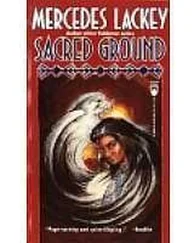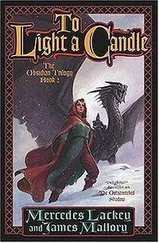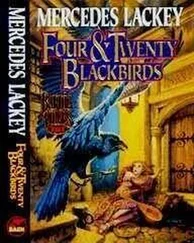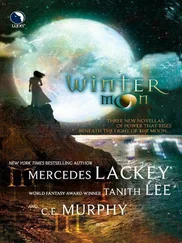Last year had brought a fine honey harvest and she had plenty stocked away for making soothing syrups. With a surplus of extra jugs, she’d gone ahead and made more decoctions of comfrey, lobelia, hyssop, and horehound than she usually did. Now her preparations paid off; it didn’t take long for her to mix those four ingredients, chamomile, and lemon-balm tinctures, plus the honey, for cough syrup. Work didn’t stop just because people got colds; it was up to her to make certain they could do their work even with one.
Late afternoon brought the first of the emergencies; people might be sensible about flooding, but unfortunately, cows were as stubborn and stupid as rocks. Some of the water-meadows started getting knee-deep and several folk had to wade in to lead their cattle out - the floods were too deep for the herd dogs to work in, so each fool cow had to be caught and led to safety by hand. So a handful of people came home chilled to the bone and blue around the lips - and Keisha was there with hot medicinal teas and packets of preventative herbs to go into the evening soup or stew. No harm if the rest of the family got the medicines either; all that would happen was that everyone would get sleepy earlier, and go off to bed. A warm bed was the best place anyone could be on a night like this one.
The cattle had to be treated, too, for the results of their boneheadedness, so out she went to three different farms, making sure each silly cow got her drench.
Keisha had her villagers well-trained; at the first sign of a sniffle, mothers came to the door for syrups and teas for their littles. There was a steady parade of them just after suppertime, as children who’d gone out healthy came home sneezing, because they would play in the puddles and not come in until they were as soaked and blue as the men who’d rescued the cattle.
These weren’t the things she charged for; she’d early come to the conclusion that if she took her “pay” for run-of-the-mill Healing in the things the villagers were already supplying her, it was more likely that they’d come to her early rather than waiting until the illness was truly serious. Doses with enough sleepy-making potential to make people stay abed a candlemark or two longer when they were mildly sick would keep them from getting sicker - keeping a cold at the level of sniffles and coughs in a child kept it from turning into something that could kill. She’d charge the farmers for the cattle-drenches, but only after the rains were over, and only because they had asked her to give the doses herself.
Then again, she thought wearily, after she’d trudged back to the shop from what she hoped would be the last call of the night, I can get the stuff down their throats without themfighting me; when they do it, more of it goes on the cow than in it, poor things.
Absolutely, positively, no point in going home to sleep; everyone knew that in weather like this, she’d be at the shop where everything she might need was at hand. I’m just glad I got the laundry done, she told herself, as she closed the door behind her, and surveyed the wreck of her workshop. I hope they give me some time to get this cleaned up in the morning before they haul me out again.
She followed her own prescription and added a packet of her herbs to the last of the soup before she ate it - as she’d anticipated, she hadn’t had a chance for a meal after that first bowl. The she put the beans, seasoning, and some ham into another pot and put that over the fire to cook all night. She managed to wash up the dishes and the first soup pot, but ran out of energy, and took two seedcakes and a mug of cider up to the loft where she snuggled into her bed, leaving them on the little table beside the bed for a quick bite if someone pulled her out in the middle of the night.
But that night, at least, her sleep was unbroken, and the cakes and cider made a perfectly good breakfast. It was an unexpected luxury to eat breakfast in bed, with the rain drumming down on the roof outside and the savory aroma of bean soup filling the workshop.
She didn’t linger long, though; she was up and washed and clothed quickly, dressing for the weather. No telling when she’d be called out again.
I could do myself a big favor by getting baskets ready to snatch up, she decided, and lined up four on the workbench. Into one went standard remedies for minor human ailments, and into the second the same sorts of things for animals. Into the other two went medicines for more serious complications. She didn’t think she’d have to use the one for people - but the Fellowship beasts were so sensitive -
She’d no sooner finished the fourth basket when someone knocked on the door, then came in without waiting for a reply.
It was Alys, from the Fellowship.
Keisha grabbed the fourth basket without waiting to hear what brought her. “It’s the sheep, right?”
Alys nodded. “Cough,” she said anxiously. “It’s odd, a dry, hacking sort of cough.”
“Hah!” Alys didn’t recognize it, that was clear, but Keisha did. Her own family flock had gotten the illness in a rainy spring like this one. She turned to get a different jar of heavy concentrate down off the top shelf and put it in her basket as well. “No worries, I’ve got what we’ll need; they’ll be fine as long as we get them warm and dry and get my stuff into them. Come on.”
She swung on her rain cape and slipped her feet into her clogs, heading straight out the door. Alys followed, her brow creased anxiously.
“How are we going to get them dry and warm?” she asked. “They’re soaked to the skin!”
Keisha stopped in the doorway and made a mental inventory of the Fellowship buildings, and realized Alys was right, there was no way to get the sheep under cover on Fellowship property. But there was the village threshing barn, empty and unused at this time of year, and with the favors the Fellowship had done the village, they were certainly owed a favor from the village in return.
“Get your dogs and herders and bring all the sheep up to the threshing barn,” she ordered. “We’ll use that until the rain is over. Don’t worry, I’ll make sure it’s right. I’ll meet you there.”
Alys took her word as good, and trotted off through the puddles toward the Fellowship holding. Keisha stopped just long enough at the Mayor’s house to confirm the right of the Fellowship to use the octagonal barn until the rains were done - so long as they supplied fodder for the sheep and cleaned up after them.
Keisha hurried to the barn and let down the oiled canvas interior sides that shut out the wind and rain when need be. The canvas hadn’t come cheap, but in the rush of prosperity following the sale of the barbarians’ looted goods, it had been a sound investment. Now the barn could be used for many purposes in all weathers, even in the dead of winter - it became a tight, weatherproof and windproof tent with a fine shingled roof and seven external supporting walls of wood. It was a tight squeeze, but you could even hold a Faire in there.
The eighth wall, the one opposite the door, was of stone and did not have a canvas cover, but that was the very last thing it needed.
By the time she’d done lacing all the canvas panels together, the poor, sodden sheep showed up, bleating and coughing pathetically. No doubt about that cough; Keisha had heard it before, and the illness “felt” the same as soon as she touched her hands to one of the sheep.
“Bring them in, then start squeezing the water out of their fleeces,” she ordered, as Alys and four more Fellowship shepherds hustled their charges into the barn. “When you’ve got them all as dry as you can, bring clean straw in here for them to bed down in. I know it’ll seem like a waste, but trust me, I want it belly-deep for the sheep in here. They have to get warm and stay warm, or you might start losing lambs.”
Читать дальше











